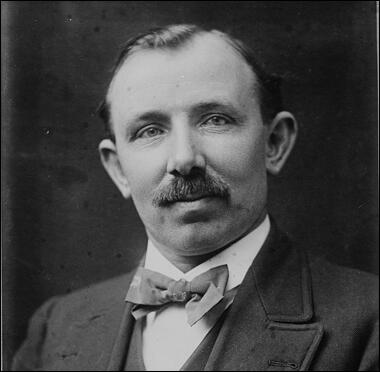On this day on 20th May
On this day in 1867 John Stuart Mill, proposed that women should be granted the same rights as men. During the debate on Mill's amendment, Edward Kent Karslake, the Conservative MP for Colchester, said in the House of Commons that the main reason he opposed the measure was that he had not met one woman in Essex who agreed with women's suffrage. Lydia Becker, Helen Taylor and Frances Power Cobbe, decided to take up this challenge and devised the idea of collecting signatures in Colchester for a petition that Karslake could then present to parliament. They found 129 women resident in the town willing to sign the petition and on 25th July, 1867, Karslake presented the list to parliament. Despite this petition the Mill amendment was defeated by 196 votes to 73.
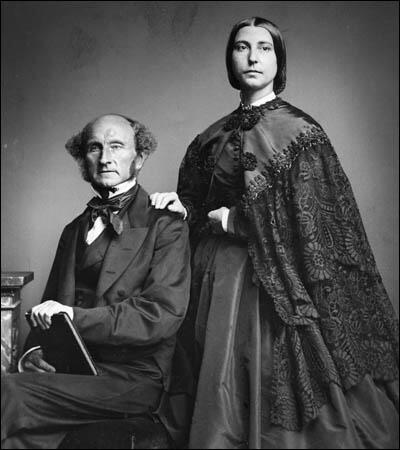
On this day in 1915 the Daily Mail calls on the government to introduce conscription. During the early stages of the conflict Lord Northcliffe created a great deal of controversy by advocating conscription and criticizing Lord Kitchener. In an article he wrote on 21st May, 1915, Northcliffe wrote a blistering attack on the Secretary of State for War: "Lord Kitchener has starved the army in France of high-explosive shells. The admitted fact is that Lord Kitchener ordered the wrong kind of shell - the same kind of shell which he used largely against the Boers in 1900. He persisted in sending shrapnel - a useless weapon in trench warfare. He was warned repeatedly that the kind of shell required was a violently explosive bomb which would dynamite its way through the German trenches and entanglements and enable our brave men to advance in safety. This kind of shell our poor soldiers have had has caused the death of thousands of them."
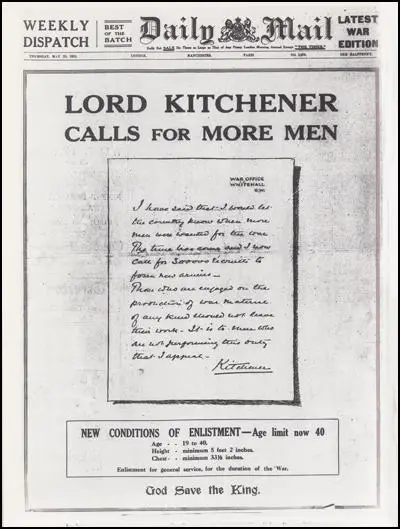
On this day in 1927 Charles Lindbergh starts his first nonstop solo flight across the Atlantic Ocean Raymond Orteig, the owner of the Lafayette Hotel, announced that he was willing to pay $25,000 to the first person to fly nonstop between New York City and Paris, a distance of nearly 3,600 miles (5,800 km). Several well-known flying aces from the First World War tried to win the Orteig Prize. This included René Fonck who crashed on takeoff on 21st September, 1926, in a three-engine Sikorsky S-35. Charles Nungesser departed from France on 8th May, 1927, but he was never seen nor heard from again.
Lindbergh decided he would have an attempt on the prize. He obtained a $15,000 loan from the State National Bank of St. Louis and along with a $2,000 of his own savings and commissioned a custom built monoplane named Spirit of St Louis from the Ryan Aircraft Company of San Diego. Lindbergh left Curtiss Field on the morning of 20th May 1927 and took 33 hours for the 3,600 mile journey between the United States and France.
When Lindbergh arrived back in the United States President Calvin Coolidge awarded him the Distinguished Flying Cross. Over 4 million people lined the parade route in New York and the mayor, Jimmy Walker, pined the city's Medal of Valor upon him. Over the next few months Lindbergh helped promote aviation through the Guggenheim Foundation Fund. This involved visiting 92 cities and making 147 speeches.
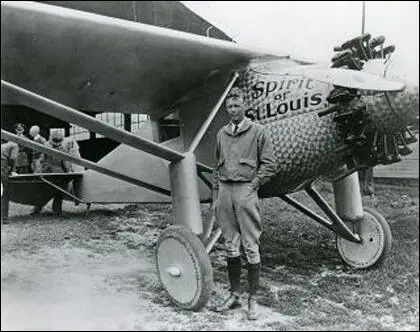
On this day in 1932 Harold Nicholson explains to Oswald Mosley why he is leaving the British Union of Fascists (BUF) "What makes it so distressing is that I should like to be able to encourage and support you in everything you do and feel.... I do not think that in practice you will succeed in keeping distinct the ideology of fascism from the violent and untruthful methods which the fascists have adopted in Italy. I think there may well be a future for the corporate state idea in this country. But I do not think... there is any possible future for direct action: we have, by training and temperament, become possessed of indirect minds."
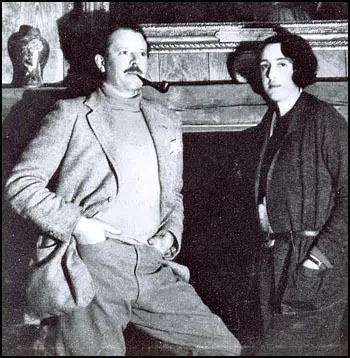
On this day in 1936 Jimmy Thomas resigns after leaking budget secrets to his stockbroker son, Leslie Thomas, and Alfred Cosher Bates, a wealthy businessman. In a Judicial Tribunal set up by the government, Bates admitted giving Thomas £15,000 but claimed it was an advance for a proposed autobiography. This high sum for an autobiography, not yet written, only increased suspicion of the two men's relationship, and Thomas was forced to resign from the government and House of Commons.
